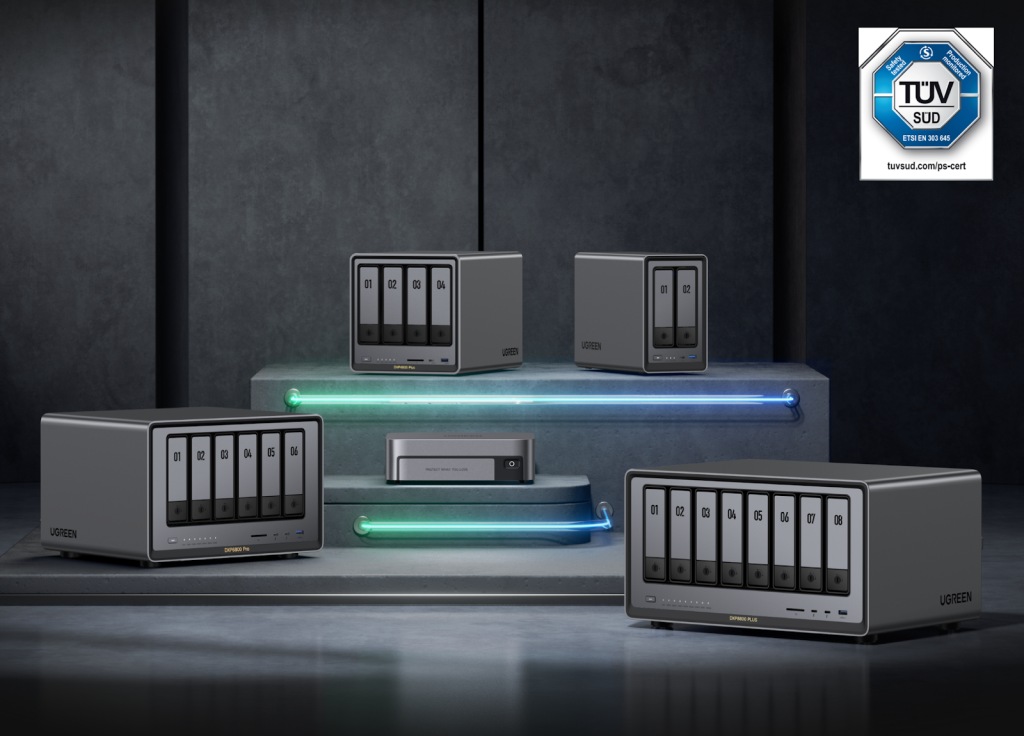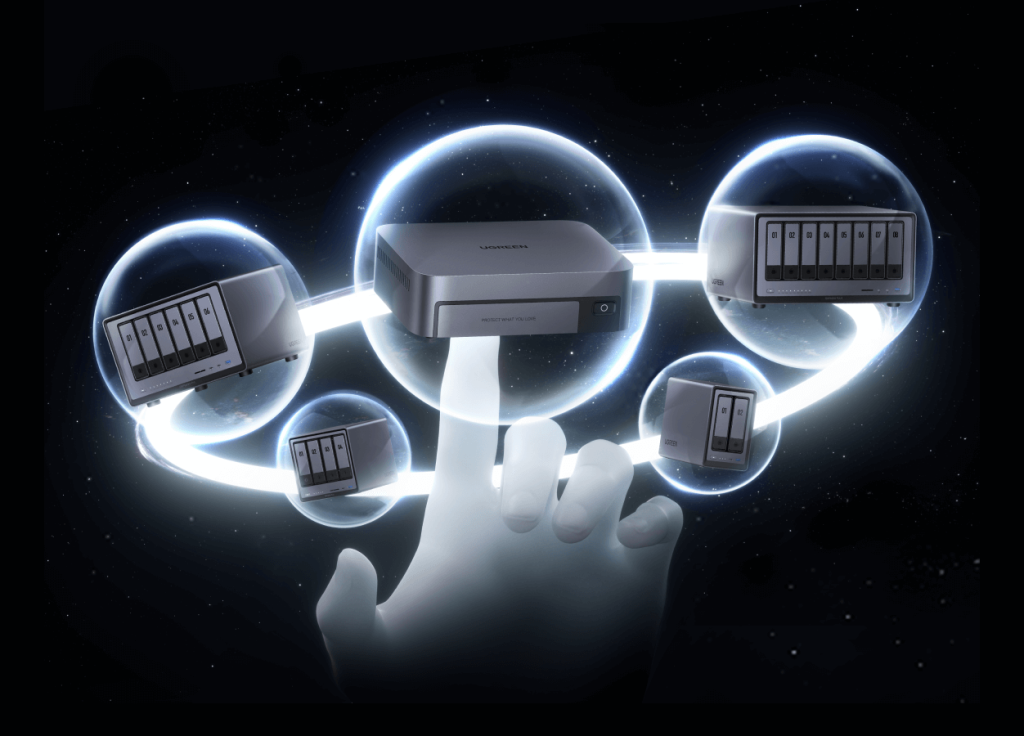Imagine losing five years of customer records and financial data in an instant. For one small marketing agency, this nightmare became reality when their consumer-grade external drive failed without warning. They’re not alone – studies show that 58% of small businesses are unprepared for data loss, while 60% of SMBs that lose significant data close within six months. Network Attached Storage (NAS) has emerged as a critical solution for small businesses navigating the complex world of hybrid work environments. While enterprises have long relied on expensive storage solutions, NAS storage for home and small business use offers enterprise-grade security and accessibility at a fraction of the cost. As cybersecurity threats evolve and regulations like ETSI EN 303 645 set new standards for connected device security, NAS provides a framework for compliance while addressing the fundamental challenge many small businesses face: balancing robust data protection with budget constraints. The solution lies in understanding how modern NAS systems bridge this gap.
The Data Management Crisis in Small Businesses
Traditional enterprise storage solutions often cost tens of thousands of dollars, putting them far beyond the reach of most small businesses. While cloud storage seems attractive initially, growing businesses quickly hit cost and performance barriers as their data expands. Monthly fees escalate rapidly, and bandwidth limitations create bottlenecks during peak usage. Meanwhile, cybercriminals increasingly target small businesses, viewing them as soft targets with valuable data and limited security resources. In 2023 alone, ransomware attacks on small businesses increased by 35%, with average recovery costs exceeding $200,000 per incident. The shift to hybrid work environments has only amplified these challenges, as employees need secure access to business data from multiple locations. Many small businesses attempt to solve this with consumer-grade external drives or basic file sharing services, creating security vulnerabilities and reliability issues. Without proper backup systems, a single hardware failure or ransomware attack can cripple operations, leading to lost revenue, damaged client relationships, and potential regulatory compliance violations.

NAS Storage Fundamentals for Business Use
Modern Network Attached Storage (NAS) systems represent a significant evolution from traditional file servers, offering a centralized storage hub that combines enterprise features with small business accessibility. Unlike decentralized storage solutions that scatter data across multiple devices, UGREEN NAS creates a unified data repository accessible to all authorized users. This centralization dramatically simplifies file management while reducing the risk of data fragmentation and version control issues. The scalability of NAS systems proves particularly valuable for growing businesses – storage capacity can be expanded by simply adding drives, avoiding the costly hardware overhauls required by conventional solutions. From a financial perspective, NAS systems typically deliver a positive return on investment within 12-18 months through reduced IT management overhead and eliminated cloud storage fees. The integration capabilities of modern NAS platforms seamlessly connect with existing business applications, from Microsoft 365 to popular accounting software, creating a cohesive workflow that enhances productivity. By serving as a central backup destination, file sharing hub, and collaboration platform, NAS systems effectively consolidate multiple IT functions into a single, manageable solution that grows with your business.

Critical NAS Features for Business Security
Understanding ETSI EN 303 645 Compliance
The ETSI EN 303 645 standard establishes crucial security baselines for Internet-connected devices, including NAS systems. This framework requires implementing secure password policies that prevent default credentials and enforce minimum complexity requirements. Manufacturers must maintain transparent vulnerability disclosure policies and provide regular security updates throughout the device’s supported lifetime. The standard mandates secure communication protocols, protected storage of sensitive security parameters, and minimized attack surfaces through port restrictions. For small businesses, compliance with these requirements ensures their data storage solution meets current cybersecurity best practices while preparing for future regulatory requirements.
Encryption Protocols and Access Controls
Modern NAS systems employ military-grade AES-256 encryption for both data at rest and in transit, protecting against unauthorized access and data breaches. Multi-factor authentication adds an essential security layer, requiring users to verify their identity through multiple methods such as passwords, hardware keys, or mobile authenticators. Granular user permission systems enable businesses to create role-based access controls, ensuring employees can only access data relevant to their responsibilities. Comprehensive audit logging tracks all system access attempts and file modifications, facilitating security incident investigations. Advanced NAS platforms also incorporate automated threat detection systems that can instantly block suspicious IP addresses and alert administrators to potential security breaches.

Performance Essentials: Connectivity and Access
High-Speed Connectivity Options
Modern NAS systems leverage advanced networking technologies to deliver enterprise-grade performance. The transition from traditional gigabit to 2.5GbE connections provides a significant speed boost, while 10GbE offers unparalleled throughput for demanding workflows. SSD caching dramatically improves file access speeds by storing frequently accessed data on faster storage tiers. For businesses supporting multiple simultaneous users, link aggregation combines multiple network connections to increase bandwidth and provide failover protection. Real-world performance tests demonstrate that a properly configured NAS can sustain transfer speeds of over 1GB/s, enabling smooth 4K video editing and large dataset processing without bottlenecks.
Secure Remote Access Implementation
Modern NAS platforms include mobile apps that enable secure file access and media streaming while enforcing enterprise security policies. Advanced bandwidth management tools prevent remote access from overwhelming local network resources. Implementation of trusted SSL certificates and regular security audits ensure remote connections remain protected against evolving threats. These features enable businesses to maintain productivity without compromising security, regardless of where employees work.

Implementing Business NAS: Practical Guide
Implementing an effective NAS solution begins with accurate storage capacity planning. Calculate current data volume across all business applications, then multiply by 1.5 to account for immediate growth needs. For most small businesses, this assessment reveals 4-8TB as an optimal starting point. When selecting RAID configurations, RAID 5 offers an ideal balance of performance and redundancy for small businesses, while RAID 6 provides additional protection for critical data. Implement the industry-standard 3-2-1 backup strategy: maintain three copies of important data, store backups on two different media types, and keep one copy offsite. Document your compliance measures by creating a comprehensive checklist that tracks encryption implementation, access control policies, and backup verification procedures. Develop clear employee training protocols that cover secure password creation, two-factor authentication setup, and proper file sharing practices. Include specific guidelines for remote access procedures and data handling protocols. Establish monthly security audits to verify system integrity and user compliance. Create incident response procedures that outline immediate actions for various scenarios, from hardware failures to ransomware attacks. Regular testing of backup restoration processes ensures business continuity in crisis situations.
Business-Ready NAS Solutions
Leading manufacturers like UGREEN demonstrate how modern NAS solutions can effectively meet small business needs through thoughtful feature integration. The system architecture supports incremental scaling from basic two-bay configurations to larger arrays, allowing businesses to start small and expand as needed. Built-in hardware encryption acceleration ensures security measures don’t impact performance, while the processor and memory specifications support multiple simultaneous users without bottlenecks. The implementation of ETSI EN 303 645 security standards is evident in features like automated firmware updates, secure boot verification, and network intrusion detection. The system’s backup capabilities encompass both local and cloud destinations, with support for popular services like Google Drive and Amazon S3. For small businesses, these platforms demonstrate particular strength in media handling, supporting workflows from security camera recording to team collaboration, while maintaining enterprise-grade protection through features like snapshot recovery and ransomware protection.
The Strategic Value of NAS in Modern Business
The evolution of Network Attached Storage from enterprise technology to accessible small business solution marks a turning point in data management. As cybersecurity threats continue to evolve and regulatory requirements become more stringent, NAS systems provide the essential framework small businesses need to protect their digital assets without straining limited budgets. By implementing a properly configured NAS solution, businesses gain not just secure storage, but a comprehensive data management platform that scales with their growth. The combination of military-grade encryption, automated backup systems, and flexible remote access capabilities ensures companies can maintain productivity while meeting compliance standards like ETSI EN 303 645. For small businesses still relying on consumer-grade storage solutions or facing escalating cloud costs, the time to evaluate NAS implementation is now. The investment in a robust NAS infrastructure today protects against the potentially devastating costs of data loss tomorrow while providing the foundation for secure business growth in an increasingly digital economy.


